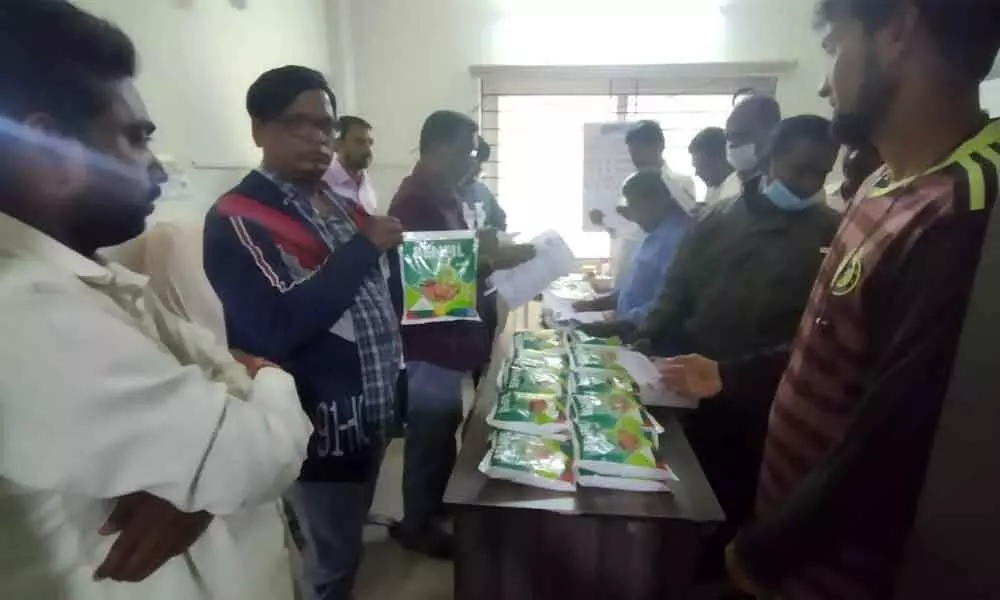Hyderabad: Drive rolled out to save neem trees from 'dieback' disease

Drive rolled out to save neem trees from ‘dieback’ disease
Experts warn against use of hazardous pesticides to treat trees without thorough study
Bandlaguda: Following reports that a fungal disease, 'dieback,' is infecting the neem trees which are to seed shortly after getting affected with bug in the State, the sanitary wing in Bandlaguda Jagir Municipal Corporation rolled out fungicide spraying drive to protect the trees from infection.
It is said that, after swarming Karnataka and AP, the disease has entered Telangana and left the trees dry and dead in Ranga Reddy, Hyderabad, Mahbubnagar, Medchal, Gadwal and Warangal districts, besides a few others. The rare bug, said to have been detected during the 1970s, has surfaced again affecting specially neem trees otherwise known as panacea for all sorts of fungal infections.
Informed Manohar, manager, Bandlaguda Jagir Municipal Corporation,
"we took up a fungicide spraying drive on Friday to cover all neem trees under Bandlaguda Jagir Municipal Corporation. There are around 10,000 trees in the corporation limits. To safeguard them we are using Benfil, a fungicide, that would protect them from the infection."
He explained "a team of sanitary staff led by Health Assistant Moin Baba and jawans has been entrusted with the task to administer fungicide spray. The drive will continue till we complete the task. People too can approach us to avail the opportunity to protect their neem trees."
However, medical experts warned against use of fungicides which are not approved due to their harmful effects on trees as well as on humans.
Ruling out a claim that the neem trees are getting affected due to transportation of saplings from north Indian States for the Haritha Haram programme, farm specialist Dr Narasimha Reddy Donthi said, "There could be several reasons leading to neem leaves becoming dry. It could be a systemic problem caused by lack of minerals, insufficient water and groundwater pollution. The problem is not yet diagnosed scientifically. Instead of conducting a thorough study, authorities are rushing to apply chemical, hazardous pesticides, to a tree known for its pest-killing properties." Explaining that bacteria and fungus could also be a reason, he said, depleting levels of carbon in the soil too can contribute to the problem. "Treating the tree with fungicide is not the appropriate solution. It can kill the tree instead. Especially, the Benfil (carbendazim) is not approved for usage on neem trees. Exposure to it can cause skin and eye irritation and lead to lung damage if administered without proper precautions. This is completely illegal, illogical and unscientific solution to treat the affected neem trees," he asserted.
















